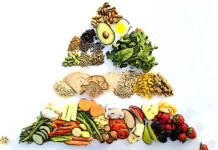Vegetarians and vegans are more exposed to the consumption of ultra-processed foods. The quest for a healthy diet through the exclusion of animal foods can turn into a boomerang. With potentially greater health risks than a balanced omnivorous diet that relies on unprocessed or minimally processed foods. The French scientific study.
The paradox of veg diets
The paradox of veg diets emerges from scientific research conducted by
Nutrinet Santé Cohort
, funded by French public institutions, as part of an investigation into correlations between different types of diets and noncommunicable diseases. Non-Communicable Diseases, NCDs, which include cardiovascular diseases, type 2 diabetes, hepatic steatosis, cancers and other serious and/or chronic diseases. Which represent the leading causes of premature mortality and are continuously increasing. (1)
The researchers engaged 160,000 volunteers, who have been reporting their food consumption and health status through online questionnaires for two years. Thus, it is possible to identify the share of ultra-processed foods consumed by followers of four eating styles:
– omnivores,
– pescetarians (those who consume plant-based foods and fish),
– vegetarians (who abstain from consumption of meat, including processed meat, but not including dairy products),
– vegans (who exclude the consumption of any food of animal origin).
Ultra-processed foods in excess
Comparison of eating styles and consumption of ultra-processed foods shows that 39.5 percent of energy (kcal) intake by vegans comes from ultra-processed foods. This is followed by vegetarians (37 percent) and finally, albeit at a short distance, omnivores (33 percent).
Consumption of ultra-processed foods is excessive, however, given the health threats associated with them. With increased exposure to risks of noncommunicable diseases and premature mortality, immune system injury, and food addiction.
The negative record, in this respect, of the vegan diet is attributed to the over-reliance on ready-made meals that mimic meat. La Lab Meat and other substitute products, which are often made with extensive use of synthetic food additives, excess sodium, and GMO microorganisms (which, unlike ingredients, are not subject to mandatory specific labeling). (2)
Beware of salt
The risks of cardiovascular disease are first and foremost related to excessive sodium/salt intake. Among other things, this excess affects the risk of contracting diabetes and should therefore be kept under special care. All the more so where one considers that Europeans consume twice as much salt each day, on average, as the WHO recommended threshold (5 g/day).
A previous market survey we conducted in Italy of more than 130 ready-to-eat foods aimed at a vegetarian and vegan audience has already shown that such products are often characterized by excessive salt/sodium content.
In France-as in Italy and other countries as far away as Australia-most ready-made foods for vegans and vegetarians are overly processed and contain too much sodium/salt. In fact, according to the Siga Database, updated as of July 2020, 89 percent of meat substitutes are ultraprocessed foods. (3)
Cum grano salis
Marta Strinati and Dario Dongo
Notes
(1) The research project, launched in July 2018, is funded by the Ministry of Health, the University of Paris 13, Inserm, Inra, Cnam and the Research Center in Epidemiology and Statistics Sorbonne Paris Cité
(2) V. Gehring, J., Touvier, M., Baudry, J., Julia, C., Buscail, C., Srour, B., … & Allès, B. (2020). Consumption of Ultra-Processed Foods by Peach-Vegetarians, Vegetarians, and Vegans: Associations with Duration and Age at Diet Initiation. The Journal of Nutrition. nxaa196, doi.org/10.1093/jn/nxaa196. See in this regard also our free ebook ‘
GMOs, the Big Scam
‘
(3) SEE https://siga.care/blog/regimes-vegetariens-vegans-aliments-ultra-transformes/









